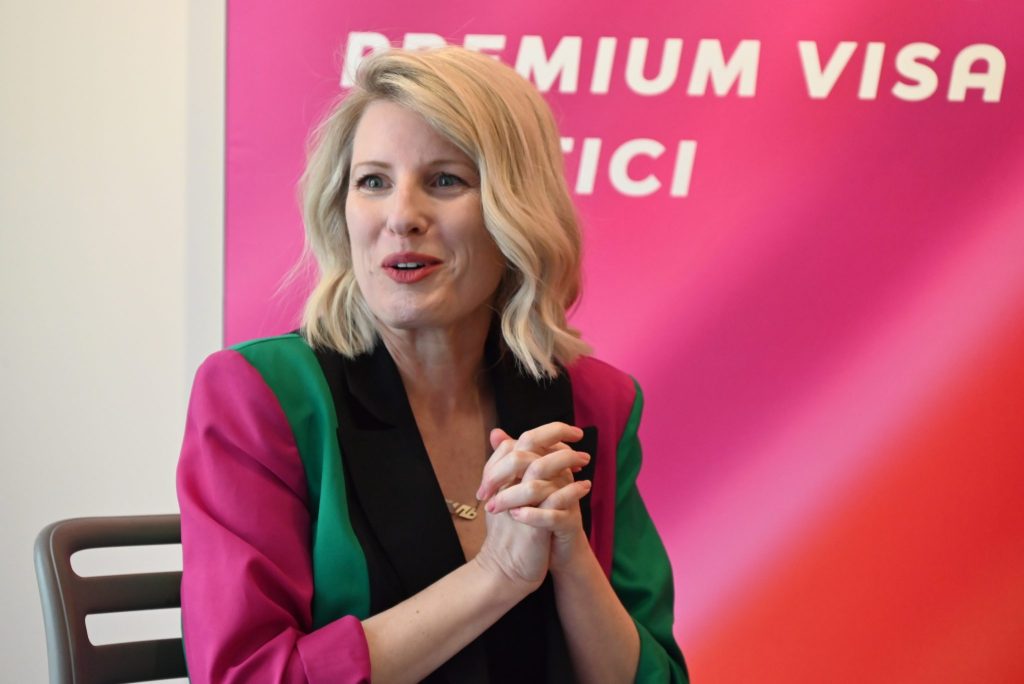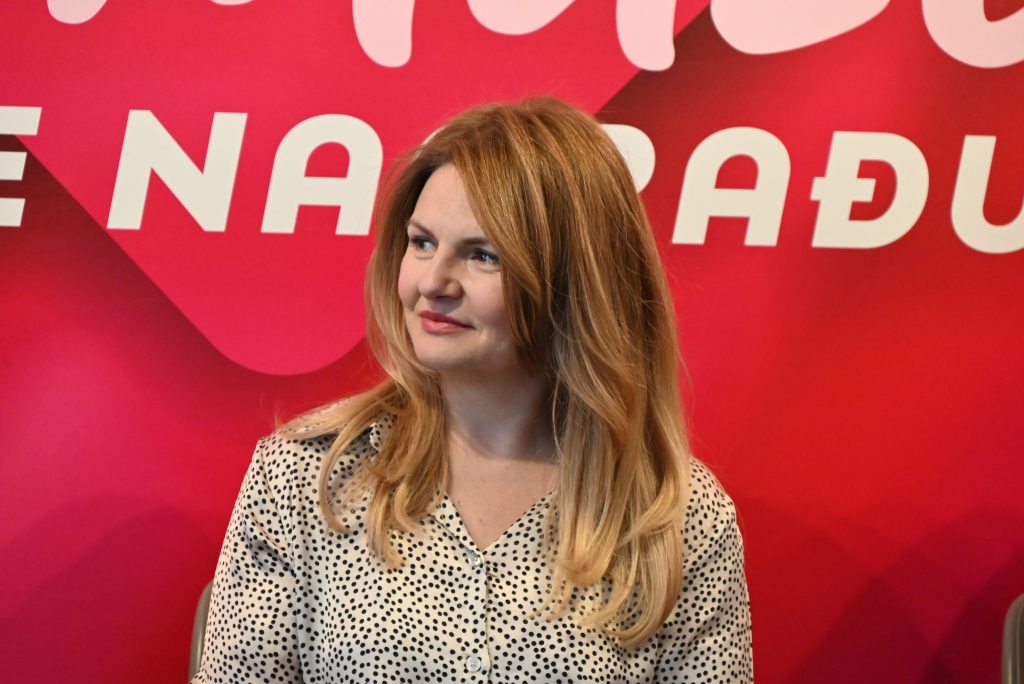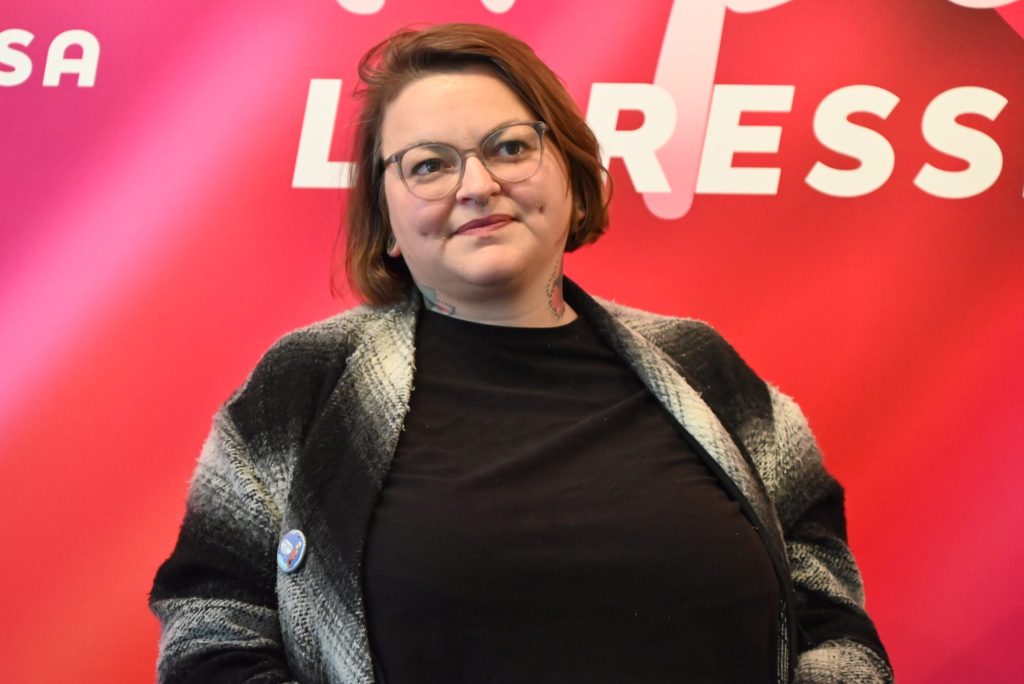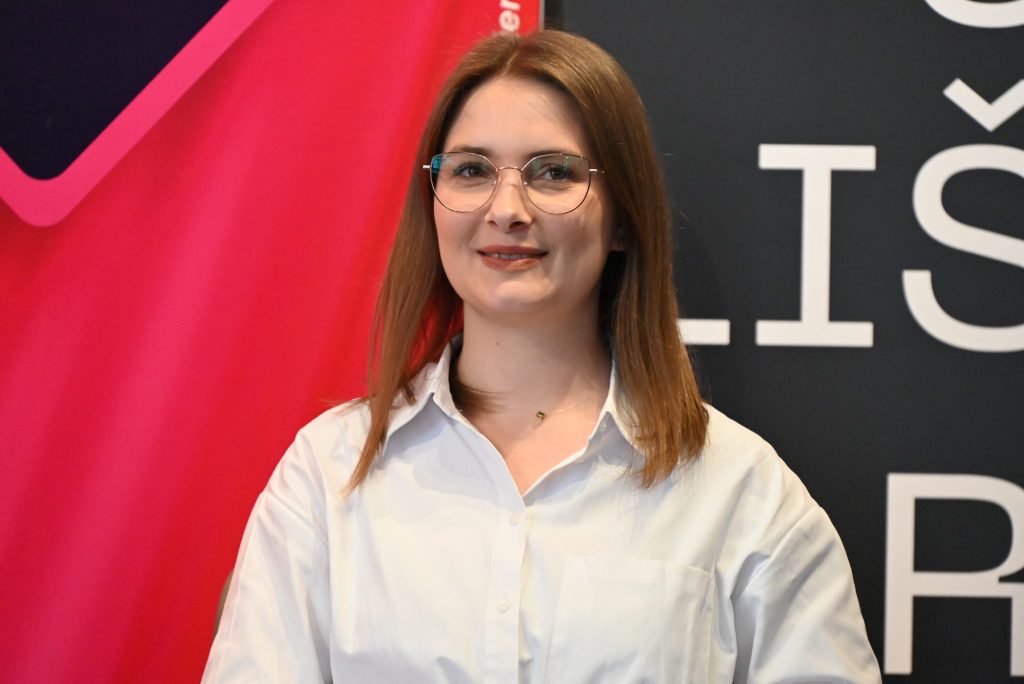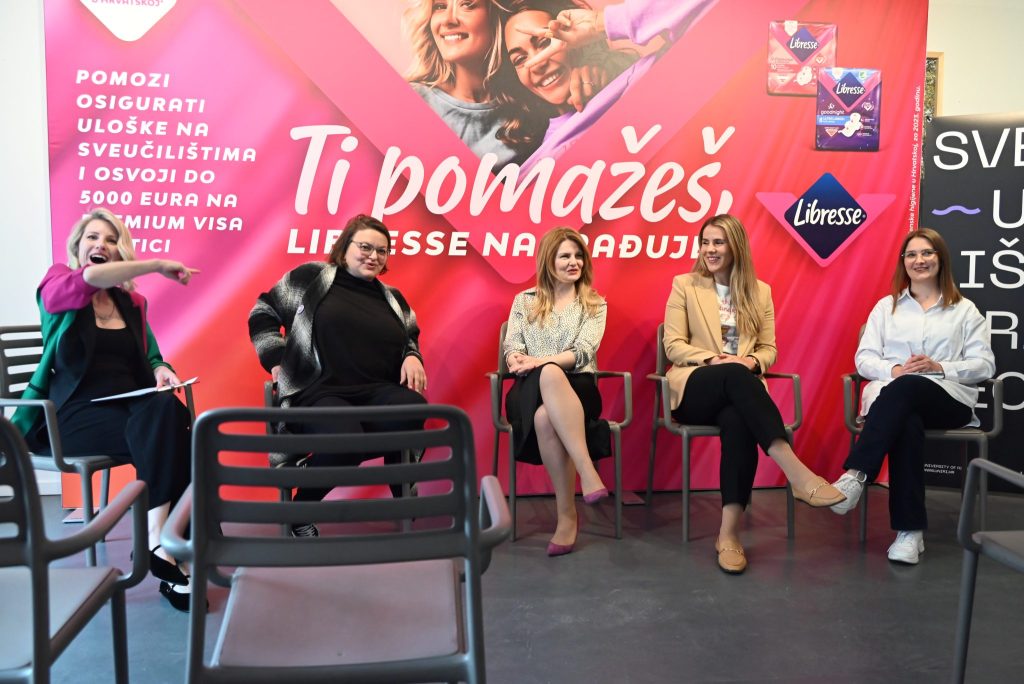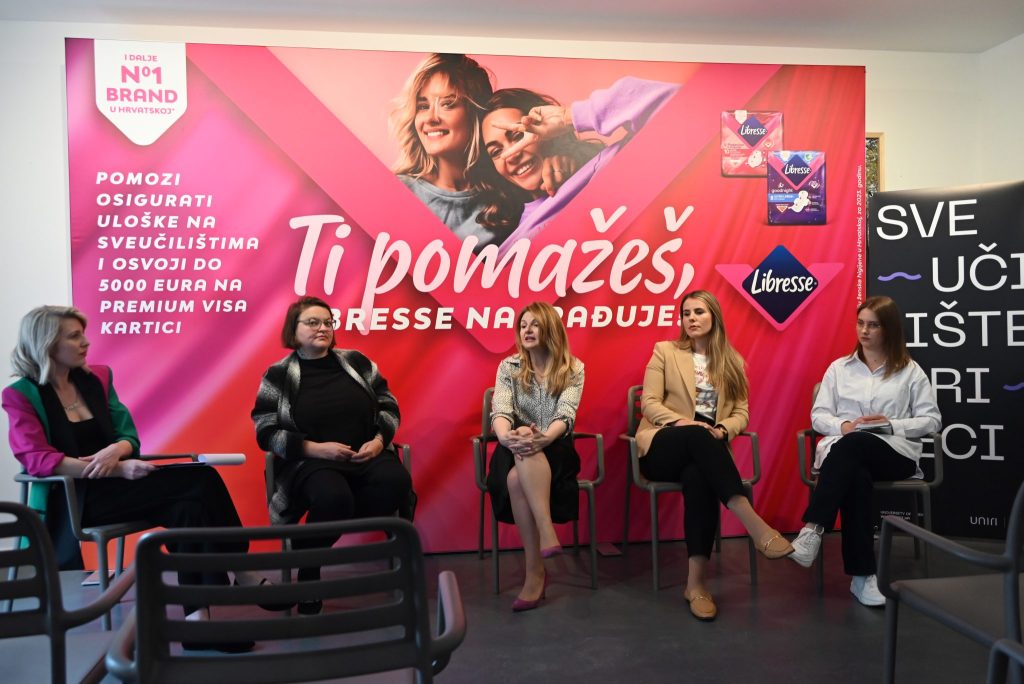To highlight the importance of preventing difficulties in procuring hygiene products and the negative impact of such consequences on education, our University joined the national campaign “You help – Libresse rewards!”. The campaign was officially launched on March 26, with a press conference organized at the OK Gallery in the premises of the Museum of Modern and Contemporary Art in Rijeka. During the campaign (April 2 to May 31, 2024), Libresse will set aside 15 cents from each product sold to ensure supplies of menstrual pads that will be donated to Croatian universities, including the University of Rijeka. As part of the campaign, all customers, in addition to participating in the donation, have the opportunity to win up to 5,000 euros on a Premium Visa card.
The press conference gathered different stakeholders taking part in the campaign, namely Lana Par, president of the Student Union of the University of Rijeka, Marija Trcol, representative of PaRiter Association, Iva Stefanovski Horvatić and Maša Bašić, both marketing representatives at Essity.
Menstrual poverty refers to difficult or even completely impossible access to menstrual necessities such as menstrual pads, tampons, or pain relievers, as well as adequate hygienic conditions and public health institutions, and consequently education. Menstrual poverty affects not only women in developing countries but also in developed countries. These difficulties can directly impact women who may miss school or work due to the inability to access hygiene supplies.
Appalled by the devastating results of the study on menstrual poverty conducted by the PaRiter Association in 2021, we felt immediate action was necessary. As a complement to the research, Prof. Ana Marija Sikirić Simčić, Ph.D., from the Faculty of Economics and Business, gave recommendations to reduce menstrual poverty. In December 2021, the Student Council of the University of Rijeka launched the ‘UNIRI Things’ project. Thus, for years now, we have been providing free menstrual supplies that are available at all University constituents and financed with funds from our budget. The project was presented 3 years ago during the Croatian Student Union’s session, and we take great pride in helping students all over Croatia in the implementation of similar projects (e.g. UNIZG Ciklus, UNIPU Menga, UNIST Menstrualno zdravlje, UNIDU Menga). We also shared our practices with colleagues from Slovenia, who last year, launched their project to address menstrual poverty.
For all the details about the campaign’s implementation at the University of Rijeka, please contact the UNIRI Student Council.
